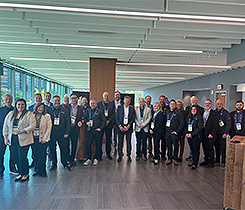Testimony in Texas must be rooted in strong evidence
In many legal actions in the propane industry, expert witnesses play a critical role in cases where the liability of various parties to an accident is in question.
A recent case from the Texas Supreme Court – Wal-Mart v. Merrell – addresses the extent to which the testimony of expert witnesses must be based on substantial evidence, rather than mere speculation.
Charles Merrell and Latosha Gibson died from smoke inhalation in the bedroom of their residence. When police officers arrived on the scene, they found a badly burned recliner, a damaged lamp, candles, melted wax and smoking materials. The fire marshal determined that the fire was accidental and of unknown origin.
Merrell’s parents sued Wal-Mart, alleging that a lamp purchased from the store was the cause of the fire. To substantiate their claim, the plaintiffs hired Craig Beyler as their expert witness, who asserted that the fire was due to “non-passive failure” of the lamp, causing it to ignite the recliner below.
Beyler theorized that the lamp’s halogen bulb exploded, sending burning glass pieces onto the recliner, ultimately causing the fire. This expert ruled out smoking materials as the cause simply because no smoking materials were discovered by investigators in the immediate area of origin. Beyler ultimately concluded that his theory of the fire causation was “consistent with the facts of this case and … wholly consistent with our knowledge of fire science.”
The Texas Supreme Court, however, noted that current law requires more than an expert making conclusory or speculative opinions to determine the fire’s cause. Because Beyler failed to consider and reject, through scientific methods, alternative possibilities for the fire’s cause, his assumption that the lamp was the reason for the fire was entirely speculative. Opinions of the sort given by Beyler are not relevant, under the applicable rules of evidence, and are therefore inadmissible.
Pertaining to propane
This case might ultimately have broad implications for the propane industry, as fire victims retain experts for the explicit purpose of assigning liability. Plaintiffs often utilize experts to assert that a propane leak occurred prior to the fire in question.
However, these claims often lack specific evidence indicating that such a leak had been present prior to the fire, and they fail to adequately account for other possible causes of the incident. The Merrell decision could be used to attack such flawed testimony. Experts must demonstrate that all alternative causes of the fire were thoroughly investigated, tested and discredited through science before they can definitively claim that propane – a propane leak, specifically – caused the fire.
Similarly, in propane incidents, plaintiffs’ experts often claim that more detailed warnings would have prevented the harm incurred. However, these statements are made without any proof that the user heeded those warnings and that more detailed warnings would have been read and heeded in a similar fashion.
In nearly all cases, experts claiming that additional warnings would have prevented the harm are merely guessing at possible ways in which that incident could have been prevented. Experts testifying to possible warnings should now be challenged to demonstrate, through scientifically backed evidence, that such a revised warning would have altered human behavior.
Future impact
Ultimately, the Merrell decision might demonstrate a continued trend in American jurisprudence – one that puts a greater duty on plaintiffs to prove their case through more than pieces of evidence that play on emotional sympathies and amount to mere conjecture.
Rather, all expert opinion testimony must be rooted in strong evidence, resulting in an opinion that is neither speculative nor conclusory. In cases where an expert is unable to provide an opinion that makes the existence of a material fact more or less probable, courts, in Texas and elsewhere, will deem the testimony irrelevant and, therefore, inadmissible.
















